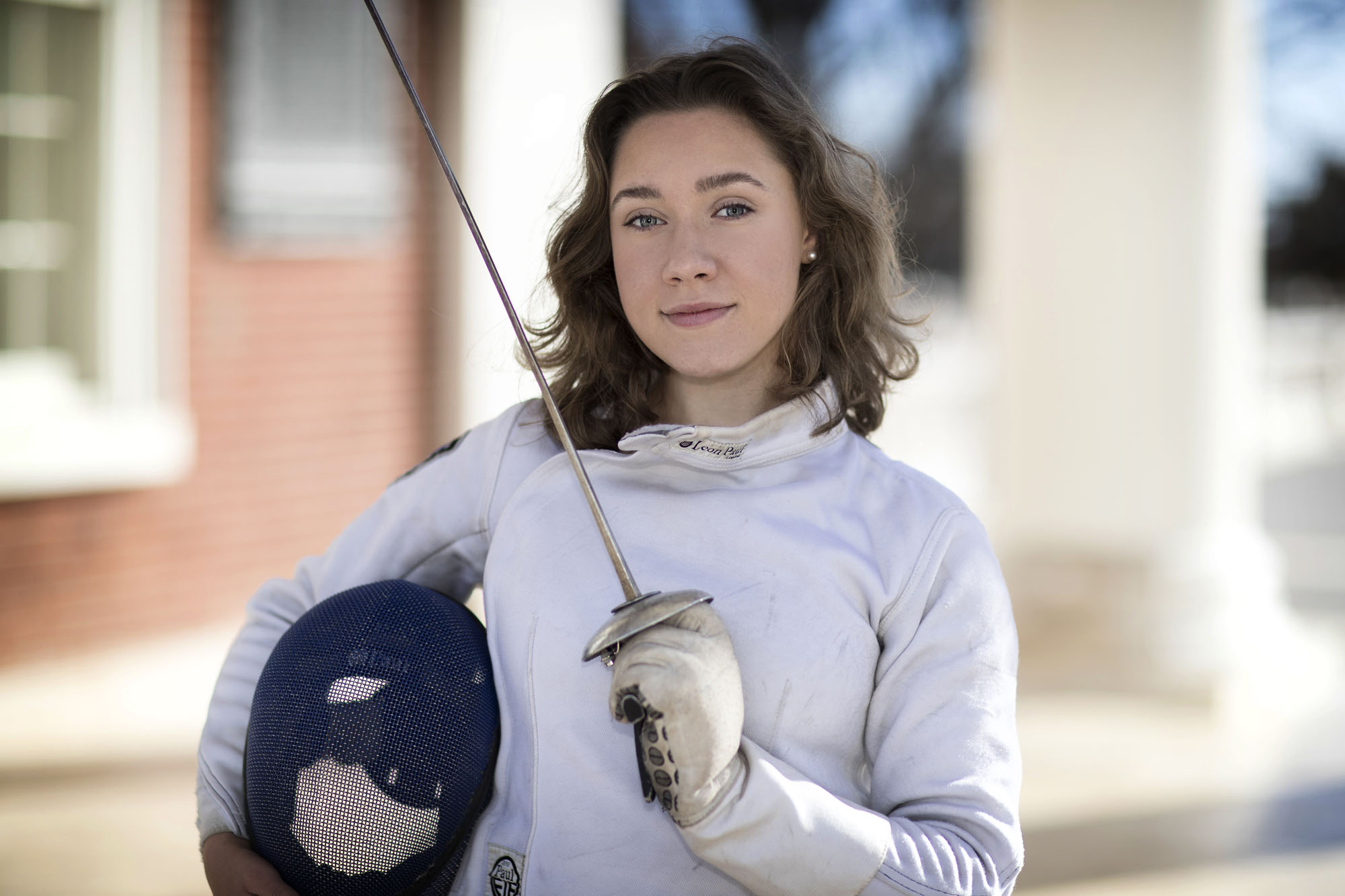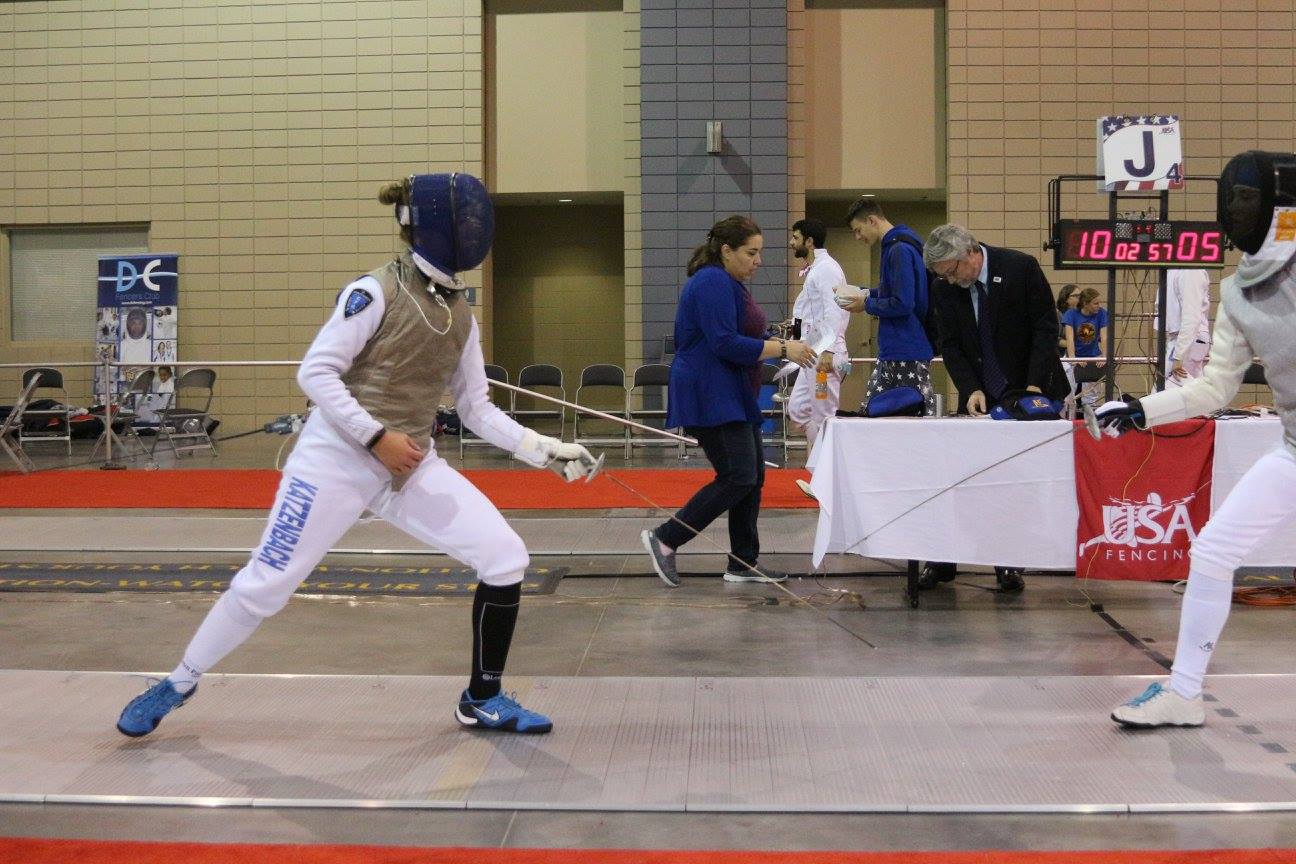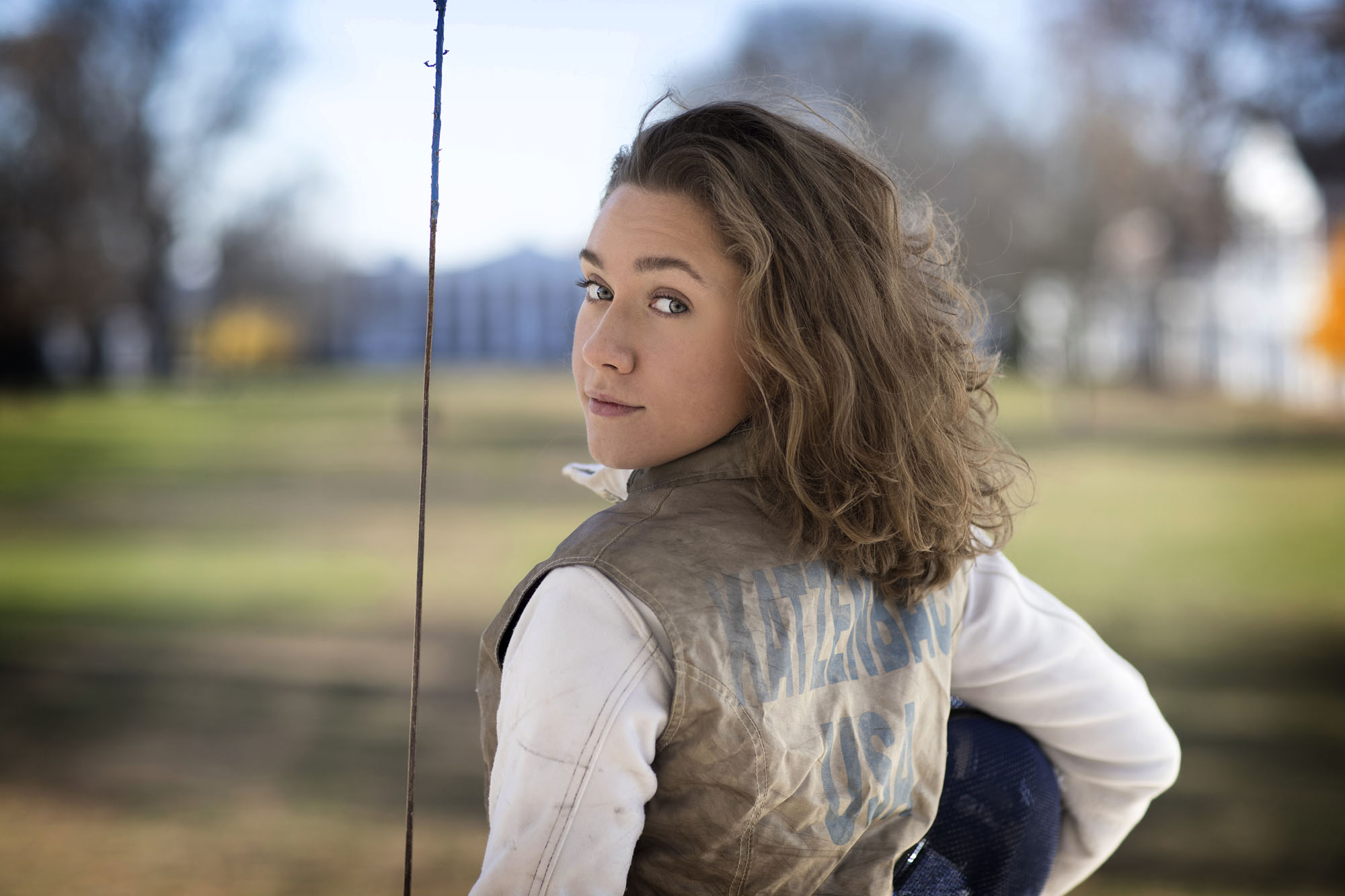You may have seen it acted out in scenes from movies like The Parent Trap or The Princess Bride, but most people have never experienced the sport of fencing in real life. This was the case for Grayson Katzenbach (Alpha Omicron Chapter ‘19) until her sophomore year of high school. She decided to join the sport after her sister enrolled in a beginner’s class because “what other sport can you hit your sibling with a sword and not get in trouble,” she jokes.
Katzenbach was immediately enamored with fencing because it was unique to any sport she had ever tried before. “When you are fencing, it is just you and your opponent,” she explains, “Your blades and foot tempo are engaged in constant conversation without either of you ever saying a word. Instead, your body language and bladework speak for you.” Within months of beginning, Katzenbach had graduated to the Elite Competitive class and was training four days a week. Within a year, she had begun fencing on the national scale.

Now, Katzenbach competes as part of the Virginia Fencing Club at the University of Virginia. She not only competes, but she also referees on all levels, including local, regional and national, for the US Fencing Association. Katzenbach is the current female Virginia State Champion for two different types of weapons, Foil and Epee, a record that hadn’t been held in seventeen years. She is also the first Virginian female to compete in the Junior Olympics in all three weapons: Foil, Epee and Saber.
Although the titles and records are nice, Katzenbach’s proudest achievement is starting Valley Fencing Alliance, an LLC business through which she offers fencing classes, workshops and lessons to all ages. “Many of my students have never tried fencing before my class,” she explains. “I see them fall in love with the same sport that has done so much for me. To look past their wired mask and see their eyes illuminate when they finally grasp a concept never ceases to fulfill me.” Starting her own fencing business at age nineteen presented its obstacles. Katzenbach had to design her own website and posters, learn how to write liability forms, budget money to purchase gear and rent as well as advertise to ensure that her classes would be full. Since it’s opening, she has introduced fencing to over two hundred people and donated around $5,000 worth of fencing packages to local organizations.

“The most important lesson I have gained by teaching others is adaptability,” says Katzenbach, who finds herself teaching the same drills to students aged six through over fifty. She has to be able to adapt her teaching style to the way the student learns. “Being able to detect why someone is not understanding you or not succeeding is a skill that has definitely helped me grow as a leader. It taught me that successful leaders must stay connected with their group through communication and active listening,” she explains. Katzenbach also admits that she’s made mistakes while learning to teach. “I had to learn how to relentlessly strive to become better through self-evaluation and humbly accepting criticism. Teaching others showed me how to accept responsibility and fully commit to my group by exemplifying traits I want my students to possess - not only in fencing but also in their attitude towards themselves and others.”
Katzenbach says her favorite teaching moment was when an 8-year-old student ran to her at the end of their last class and gave her a long hug saying “I didn’t think I would like fencing, but you showed me I could be good at something that means a lot to me.” Katzenbach says “Every time I help a student accomplish something, I feel incredibly empowered. To know that I influenced their life enough to make an impact on them truly touches me and is something I will always value.”
As one can probably tell, Katzenbach is a busy student - balancing her studies and campus involvements with fencing. “I have completed homework while traveling on planes or in-between events. Through this, I have developed a strong sense of time management and multitasking that help me to succeed in all aspects of my life,” she explains. She also welcomes the important mental and physical break from her studies that fencing provides. It helps her to de-stress and refocus. Katzenbach also has the support of her Brothers in the Alpha Omicron Chapter of Phi Sigma Pi. “It amazes me how supportive my Brothers are of my fencing,” she says. “They ask me how my competitions went, if there are any big upcoming events and we even had a fencing workshop as one of our scholarship events! Having that supportive community means a lot and I am so thankful that I have such an amazing Brotherhood.”

Right now, Katzenbach is mainly competing with UVA’s fencing team and is only doing local and a few regional tournaments outside of that. She will also be traveling to Memphis, Tennessee to referee the 2018 Junior Olympics in February. Katzenbach plans to spend this semester really focusing on her academic and career goals, however, she will be teaching fencing at a local high school and offering occasional fencing workshops.
Katzenbach began fencing because of a stigma but wants people to know that the sport is so much more than one would think. “I was expecting to see a scene from The Princess Bride in real life. Instead, I saw a modern sport that had conductive vests, cords and wiring for scoring - and I thought that was much more fascinating. This ancient sport, dating back centuries, has now evolved into arguably the most technologically advanced sport in existence,” she says. Katzenbach is proud to represent fencing and be a leader in teaching others all there is to learn from the sport.
